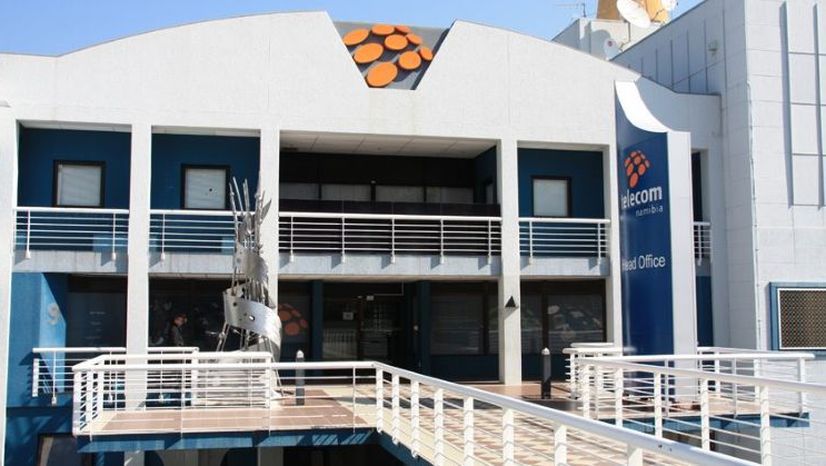Përshëndetje,
Victoria from Techpoint here,
Here’s what I’ve got for you today:
- Kenya’s CA rolls out new licencing fee for telcos
- Sub-Saharan Africa loses $1.5B to Internet shutdowns
- Namibia Post and Telecom Holdings to shut down
Kenya’s CA rolls out new licencing fee for telcos

Kenya’s Communications Authority (CA) is shaking things up to tackle the flood of fake electronics in the country. Per Business Daily, the telco watchdog is rolling out a new licensing fee called the Telecommunication Equipment Distributor (TED) licence.
Here’s the deal: wholesalers and telcos must pay a one-time fee of KSh 250,000 ($1,933.49) for a 15-year licence. On top of that, they’ll cough up 0.4% of their yearly turnover as an annual fee, but not less than KSh 120,000 (928.07).
This move is part of a bigger push to make sure gadgets like phones, TVs, laptops, and tablets meet proper international and local standards. The CA is especially worried about counterfeit devices that don’t have IMEI numbers, which makes it tough to track stolen gadgets or protect user data.
Big players like Safaricom are going to feel the heat. Safaricom, for instance, made KSh 10.54 billion ($81.52 million) from device sales in the 2024 financial year, which means it could be looking at about KSh 42 million ($324,830) in annual operating fees. Ouch!
Another interesting bit? The licence will require all devices to have at least a one-year warranty, so buyers can expect better protection. But here’s the catch: these extra costs might get passed down to customers, making gadgets pricier.
All in all, the CA’s plan is clear — get rid of fake electronics, protect buyers, and make sure the gadgets on the market are legit and up to standard. Let’s see how this plays out!
Africa lost $1.5B to Internet shutdowns in 2024

Sub-Saharan Africa took a massive hit from Internet shutdowns in 2024, losing $1.5 billion, according to data from Top10VPN. That is about 19% of the whopping $7.69 billion lost globally to these shutdowns.
Out of 28 countries that experienced Internet blackouts last year, 13 were in Africa: Sudan, Ethiopia, Kenya, Algeria, Guinea, Mauritania, Senegal, Mozambique, Chad, Mauritius, Tanzania, Papua New Guinea, and Equatorial Guinea.
Sudan bore the brunt of it, losing a staggering $1.12 billion. The country’s Internet was down for over 12,707 hours — that’s more than 529 days! The shutdown was driven by ongoing conflict that’s claimed 13,000 lives and displaced over 10 million people.
Other countries like Kenya and Ethiopia had their Internet cut off during protests, costing them $75 million and $211 million, respectively. Kenya’s Finance Bill protests were particularly intense, with people rallying against proposed tax hikes during tough economic times.
Social media played a huge role in organising the demonstrations, which escalated into dramatic scenes, including the storming of Parliament on June 25, 2024. That event reportedly left over 20 people dead, with fires and clashes marking the day.
Despite claims from Kenya’s Communications Authority that it would not disrupt Internet access, NetBlocks reported a major connectivity outage during the protests.
Across Africa, conflicts remain the leading cause of internet shutdowns. By contrast, in Asia — which saw the most shutdowns in 2024 — the main trigger was elections.
Interestingly, while global losses from Internet shutdowns have dropped significantly since 2022 ($24.61 billion to $7.69 billion), Africa still finds itself among the hardest-hit regions.
Namibia Post and Telecom Holdings to shut down

Namibia Post and Telecom Holdings (NPTH) is officially shutting down, with its assets now being handed over to its subsidiaries. This means Telecom Namibia and NamPost will soon operate as independent state-owned companies, no longer managed under the NPTH umbrella.
This big change comes after the 2020 Post and Telecommunications Companies Establishment Amendment Act, which aimed to restructure and streamline the telecom and postal sectors.
By February 2025, all NPTH properties will be fully transferred, and the government will take over its shares. The shift also includes relocating staff: 11 of NPTH’s 23 employees already joined NamPost and Telecom Namibia on January 2, while plans are still being worked out for the rest.
So why does this matter? For one, this restructuring is a push to make Namibia’s telecom and postal industries more efficient and competitive. As the world leans into digital transformation, these industries are crucial for driving growth and innovation. Independent entities like Telecom Namibia and NamPost are expected to operate more flexibly and effectively without NPTH’s oversight.
However, not everyone is happy. Some argue the restructuring is happening too fast, leaving some employees in limbo. They also question whether the government’s plan adequately considers the workforce and long-term sustainability of these companies.
All eyes will be on how this transition plays out — will it be the game-changer Namibia’s telecom and postal services need, or will it create more hurdles along the way? Either way, this marks a pivotal moment for the sector.
In case you missed them
- Nigeria unveils credit guarantee firm to boost financial inclusion
- Techpoint Africa is 10: A decade of shaping Africa’s tech narrative
What I’m watching
- THE ALPHABET EXPLAINED: The origin of every letter
- 57 Mental traps explained: This is why you do stupid things
Opportunities
- Moniepoint is hiring for several roles. Apply here.
- Celebrate the New Year with delightful stories like Smart Couples. Call 421 on your Airtel line now — you won’t be charged! Alternatively, call 07080601391 at your network’s regular rate. Learn more here.
- Follow Techpoint Africa’s WhatsApp channel to stay on top of the latest trends and news in the African tech space here.
Have a lovely Tuesday!
Victoria Fakiya for Techpoint Africa.









